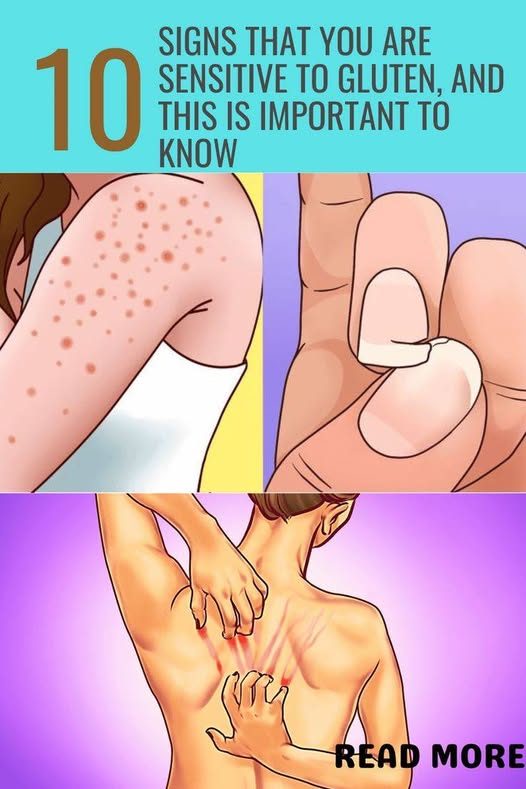ADVERTISEMENT
### 10 Signs That You Are Sensitive to Gluten
Gluten is a protein found in wheat, barley, rye, and other grains. For most people, consuming gluten is not a problem, but for some, it can lead to discomfort or even severe health issues. Gluten sensitivity, also known as non-celiac gluten sensitivity (NCGS), is a condition where individuals experience symptoms after consuming gluten, but they do not test positive for celiac disease or wheat allergy.
If you’ve been feeling unwell after eating foods that contain gluten but don’t have a known allergy or autoimmune condition, you may be wondering if you are sensitive to gluten. In this article, we’ll explore **10 signs** that you could be sensitive to gluten and how to identify this condition.
#### 1. **Bloating and Digestive Discomfort**
One of the most common symptoms of gluten sensitivity is **bloating** and digestive discomfort. You might feel gassy, have stomach cramps, or experience an uncomfortable fullness after eating foods containing gluten. These symptoms may arise within hours of consuming gluten-containing foods, such as bread, pasta, or baked goods.
#### 2. **Chronic Fatigue**
Do you often feel unusually tired or fatigued, even after a full night’s sleep? If you’re sensitive to gluten, you might experience **extreme fatigue** after consuming gluten-containing foods. This tiredness can make it difficult to get through your day and may be accompanied by brain fog, making it hard to concentrate or focus.
#### 3. **Headaches or Migraines**
Another sign of gluten sensitivity is frequent **headaches** or **migraines**. If you notice a pattern of developing headaches or experiencing migraines after eating foods with gluten, it could be a result of gluten affecting your nervous system. Some individuals report that their headaches are relieved once they eliminate gluten from their diet.
#### 4. **Joint Pain and Muscle Aches**
Unexplained **joint pain** and **muscle aches** are common symptoms of gluten sensitivity. If you experience discomfort in your joints, such as in your knees, elbows, or wrists, after eating gluten, it could be an indication that your body is reacting to this protein. Many individuals with gluten sensitivity also experience stiffness and inflammation.
#### 5. **Skin Issues**
Gluten sensitivity can also manifest on your skin. If you notice frequent **rashes**, **eczema**, or **acne** breakouts after consuming gluten, it may be a sign that your body is reacting poorly to it. Some people even develop a condition called **dermatitis herpetiformis**, which is a rash that appears as blisters and is strongly associated with gluten sensitivity.
#### 6. **Mood Changes and Anxiety**
If you find yourself experiencing **mood swings**, **irritability**, or **anxiety** after consuming gluten, it could be linked to gluten sensitivity. Gluten has been shown to affect brain chemistry in some individuals, leading to feelings of depression, anxiety, or even mood swings. These symptoms may improve when gluten is removed from the diet.
#### 7. **Brain Fog and Difficulty Concentrating**
Do you often feel mentally “cloudy” or have trouble concentrating? **Brain fog** is a common symptom among people who are sensitive to gluten. It can cause difficulties in focusing, remembering things, and completing tasks. This can be frustrating and often feels like a “mental block” that clears up once gluten is eliminated from the diet.
8. **Weight Fluctuations**
Unexplained **weight gain** or **weight loss** could also be linked to gluten sensitivity. Some individuals experience weight gain due to bloating or water retention after consuming gluten, while others may lose weight due to digestive problems that make it difficult to absorb nutrients properly.
For Complete Cooking STEPS Please Head On Over To Next Page Or Open button (>) and don’t forget to SHARE with your Facebook friends
ADVERTISEMENT
